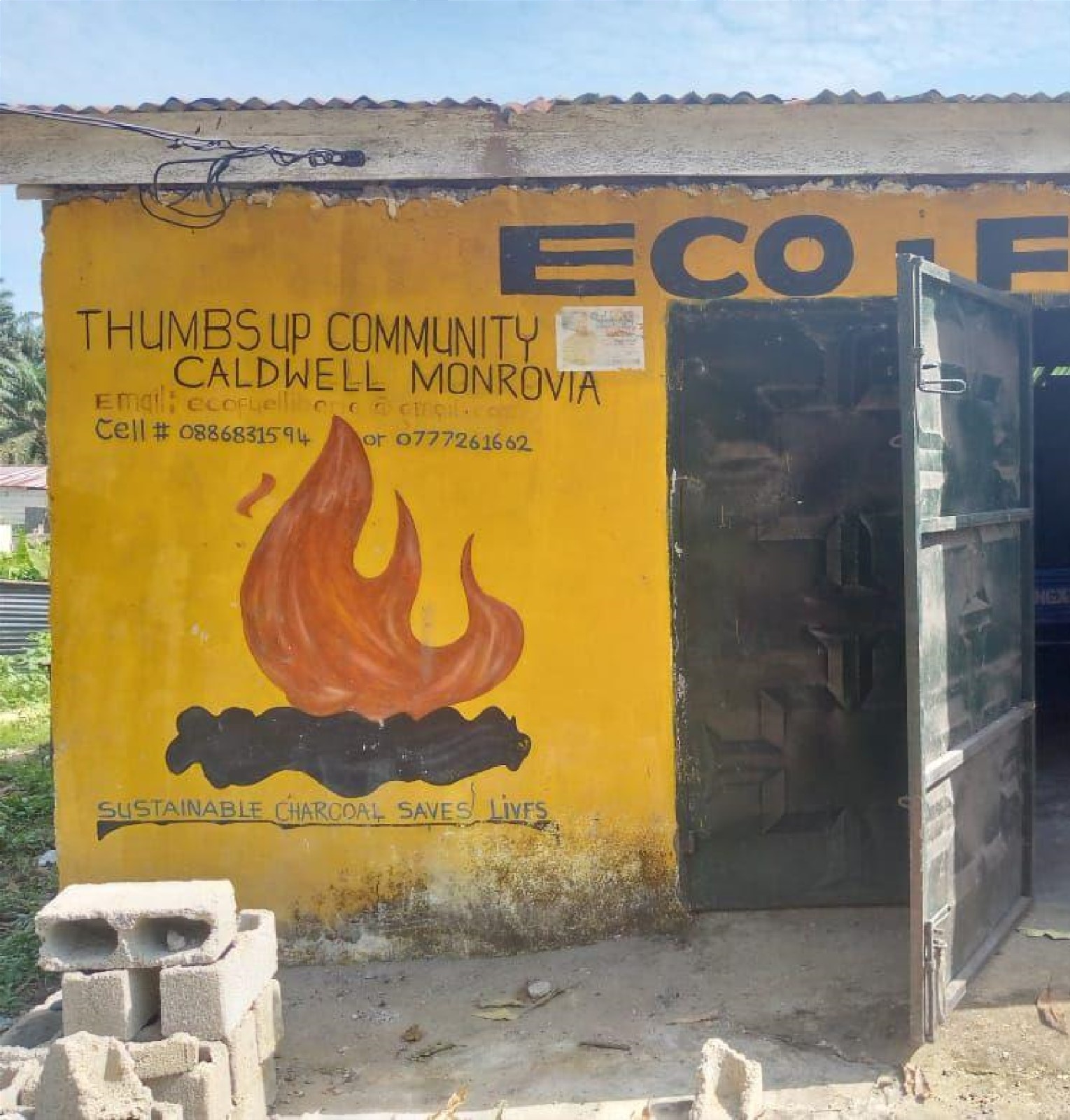Eco-Fuel Liberia (EFL) has a plan to simultaneously resolve problems by producing charcoal from organic solid waste, providing green and decent jobs for marginalized and disadvantaged youths and women in Liberia to support the conversion of solid wastes of all kinds to charcoal briquette.
Eco-Fuel Liberia

Liberians consume 11 million bags of wood-based charcoal monthly, while 720 Metric Tons of organic wastes is left uncollected in our streets daily, the stoke pilling of waste left uncollected littering in the streets have led to proliferation of common sicknesses like malaria, cholera, diarrhea, yellow fever, dysentery, etc. that accounts for over 50% of deaths in this part of the world most especially amongst children and women. At the same time our rainforests are being depleted at an alarming rate to produce tons of charcoal that are used by over 95% of Liberia’s population.
The organization has the potential for sustainable growth because with Liberia’s population growth rate at 2.5%, this is a potential 4.4 million customers’ industry. The need and demand for cooking fuel will grow every year by 2% because of increase in the population.
Eco-Fuel Liberia (EFL) has a plan to simultaneously resolve these problems by producing charcoal from organic solid waste. Eco-Fuel Liberia (EFL) has identified, prototyped and produced charcoal using sustainable methods of production in Liberia since 2018. Our methods yield cleaner, longer burning charcoal at a price point suitable for the Liberian market.
There is a possibility that this project will bring new ideas and innovation to reach out to other communities.
The successes the organization we have achieved so far motivated them apply for the EOI such as:
- Acquiring a plot of land and building a factory.
- Reducing and/or recycling waste in our immediate surrounding by 5.2 tons daily.
- Procuring local and imported machines.
- Creating green jobs and income generating opportunities for over 25 marginalized and disadvantaged youths and women.
- Provide a product that is an alternative to wood based charcoal, and it burns longer and better.
So far from our assessment, the inception of the organization since 2018 from just an idea, with passion and dedication, they have increased production capacity from 75 pieces of charcoal briquettes a day serving only 5 homes to 1 ton per day serving up to 100 homes with the capability to produce up to 10 tons per day based on the availability of raw materials. They have constructed a production facility and purchased a used second-handed 30 KVA generator for powering the factory. They have increased their customer base from 5 household / individuals to 100+ household / individuals per month.
At the current rate and/or capacity, Eco-Fuel is producing 130 bags of charcoal briquettes using just 5.2 tons of the biomass waste that is generated daily in Monrovia per month.
They will be increasing that to 4,500 bags per month, which is 180 tons of waste that will be used per month; that is 6 tons of waste per day.
They do have a factory but need expansion to increase production capacity and introduce new products on the Liberian market.
The successes they have achieved so far are:
- Acquiring a plot of land and building a factory.
- Reducing and/or recycling waste in their immediate surrounding by 5.2 tons daily.
Eco-Fuel Liberia is impacting both waste management and deforestation by producing charcoal from organic waste that is affordable for the masses. Policy, planning and legislation that values and invests in solution to waste recycling.
Eco Fuel Liberia has a 5-Year Strategic Plan to produce multiple grades of charcoal;
Scaling up: Scaling up current production from 1.3MT/month to 850MT/ month; which will reduce wood-based charcoal consumption in Monrovia by 20%.
Scaling out: In setting up such a business, the amount or cost depends on the approach and scale they undertake. If they intend to go big by renting a place, then they would need a good amount of capital as to ensure that their employees are well taken care of, and that their facility is conducive enough for workers to be creative and productive.
This means that the start-up can either be low or high depending on their goals, vision and aspirations for their business. The tools and equipment that are used are nearly the same cost everywhere, and any difference in prices would be minimal.
EFL needs a budget of $50,000 to execute this project. The budget will be used to cover EFL’s costs for conducting required activities of the project, including sourcing and procurement of raw materials (wastes in tonnage), construction of a mini waste to charcoal production, facilitaiting of training of charcoal production , procuring production tools and equipment, production costs of charcoal for sale and finally branding.

